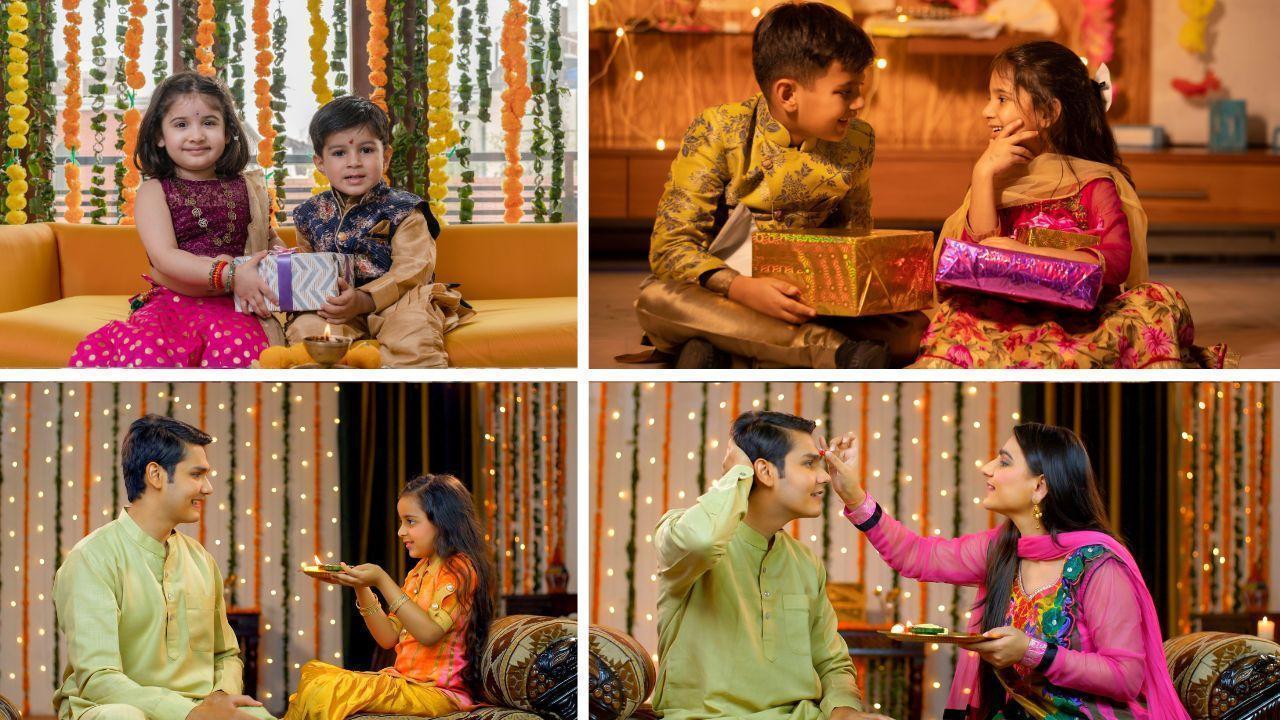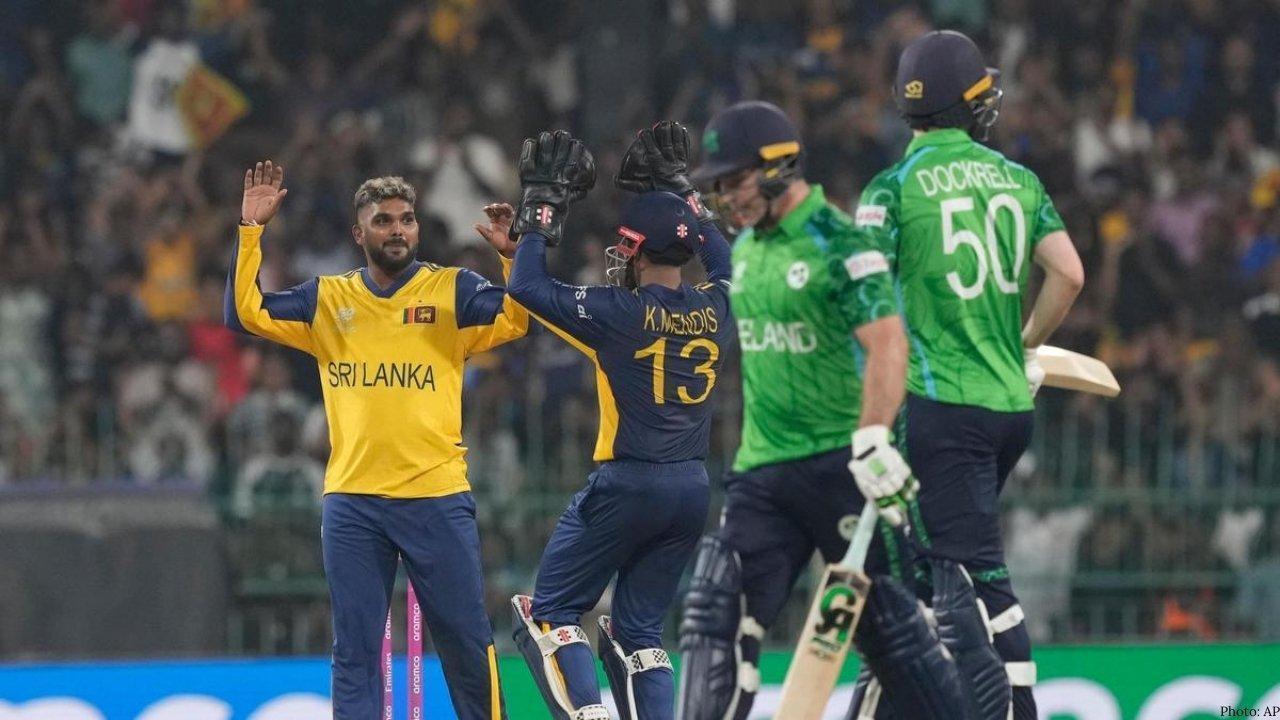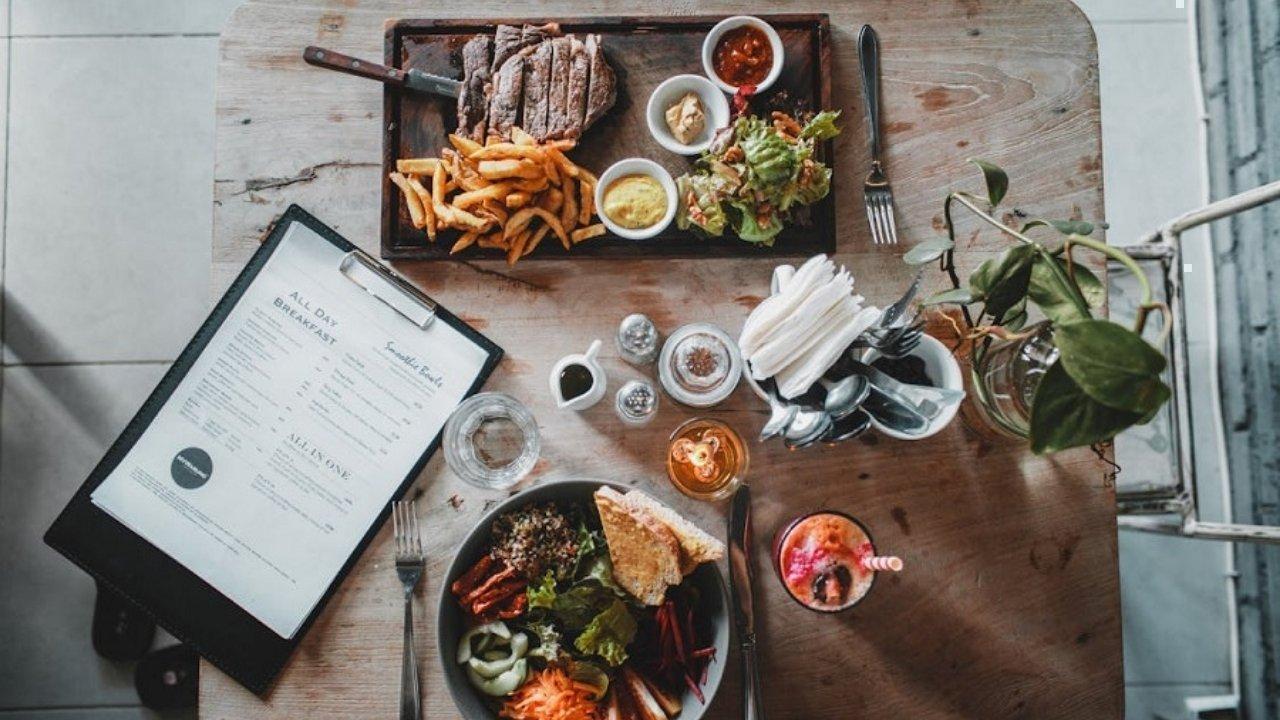You have not yet added any article to your bookmarks!

Join 10k+ people to get notified about new posts, news and tips.
Do not worry we don't spam!

Post by : Rameen Ariff
Bhai Dooj, one of the most cherished festivals in India, celebrates the sacred bond between brothers and sisters. Observed on the second day after Diwali, this festival is a symbol of love, protection, and mutual respect. Known by different names in various parts of India—such as Bhai Tika in Nepal, Bhai Phonta in West Bengal, and Bhaiya Dooj in Maharashtra—Bhai Dooj transcends regional and cultural boundaries, bringing families together to honor sibling relationships.
The festival carries both cultural and emotional significance. Sisters perform a special ritual, applying a tilak (vermilion mark) on their brothers’ foreheads, praying for their long life and prosperity. In return, brothers promise to protect their sisters and shower them with gifts as a token of their affection. The tradition, deeply rooted in Indian mythology and history, reflects the enduring values of family, care, and devotion.
Bhai Dooj has fascinating mythological origins. One popular legend revolves around Lord Yama, the God of Death, and his sister, Yamuna. According to Hindu mythology:
Yamuna invited Yama to her home and performed a tilak ceremony on his forehead.
She prayed for his well-being and longevity.
In return, Yama blessed his sister, promising her a long life and happiness.
This tale signifies the inseparable bond between siblings and forms the basis of Bhai Dooj rituals celebrated today. Another legend is linked to Lord Krishna and his sister Subhadra. Krishna visited Subhadra after slaying the demon Narakasura, and she welcomed him with great affection and rituals similar to Bhai Dooj. These stories reflect that the festival is not just a celebration but a spiritual acknowledgment of familial duty, love, and protection.
Bhai Dooj celebrations vary regionally, yet the core essence remains the same: honoring the brother-sister bond.
Tilak Ceremony: Sisters apply a ceremonial tilak on their brother’s forehead, often accompanied by rice grains. This act is believed to protect brothers from negative energies.
Prayers and Blessings: Sisters pray for their brothers’ long life, success, and prosperity, invoking blessings from gods and ancestors.
Gift Exchange: Brothers give gifts or money to their sisters as a token of love and appreciation. Gifts can range from sweets to jewelry or personal tokens of affection.
Feasting: Families prepare special meals and sweets such as ladoos, barfis, and other traditional delicacies, making the festival a feast for both body and soul.
Nepal (Bhai Tika): Sisters draw an elaborate tika on their brothers’ foreheads using seven colors, symbolizing the seven chakras and blessings. A small ritual involving a garland of flowers and a sacred cow’s saliva paste is also part of the ceremony.
West Bengal (Bhai Phonta): Sisters invite their brothers and apply tilak, along with a plate of sweets, fruits, and betel leaves. Cultural programs and family gatherings often accompany the celebration.
Maharashtra (Bhaiya Dooj): Sisters pray for their brothers’ welfare using a mixture of rice, turmeric, and vermillion paste. Brothers reciprocate by gifting sweets, clothes, or money.
Despite regional differences, the essence of Bhai Dooj remains universal: a day to honor siblings, strengthen familial bonds, and promote harmony.
Bhai Dooj is not merely a festival of rituals; it carries profound social and cultural importance. In contemporary society, where nuclear families and busy lifestyles often reduce family interactions, Bhai Dooj serves as a reminder to reconnect, celebrate, and cherish family ties.
Promotes Family Unity: Bhai Dooj encourages siblings to come together, reinforcing familial love and emotional bonding.
Instills Values in Younger Generations: Children learn about respect, care, and responsibility towards family members through participation in the rituals.
Strengthens Social Fabric: Community celebrations, especially in regions like West Bengal and Nepal, help preserve cultural heritage and traditional values.
Encourages Emotional Well-Being: The festival fosters feelings of love, security, and belonging, which are crucial for mental and emotional well-being.
In today’s fast-paced world, festivals like Bhai Dooj play a vital role in keeping traditions alive and nurturing emotional connections across generations.
Bhai Dooj is intrinsically linked to Diwali, the festival of lights, and usually falls two days after Diwali’s main celebration. While Diwali symbolizes the victory of light over darkness, Bhai Dooj extends this symbolism to familial bonds.
Spiritual Continuity: Just as Diwali celebrates life, prosperity, and the triumph of good over evil, Bhai Dooj celebrates the protective bond between siblings.
Festive Season Togetherness: Families use this period to gather, exchange gifts, and perform rituals, creating an extended festive experience.
Shared Celebrations: Many families combine Diwali festivities with Bhai Dooj rituals, ensuring that siblings’ emotional bonds are highlighted during the peak of the festive season.
This connection makes Bhai Dooj a natural extension of Diwali, ensuring that both festivals complement each other culturally, spiritually, and socially.
With changing times, Bhai Dooj has evolved while retaining its traditional essence.
Digital Celebrations: In the age of smartphones and social media, siblings separated by distance can perform virtual tilak ceremonies via video calls, sharing blessings and love in real-time.
Customized Gifts: Modern brothers and sisters often exchange personalized gifts such as customized photo frames, engraved jewelry, and digital gift cards, reflecting personal affection.
Corporate Engagements: Companies have started acknowledging Bhai Dooj through internal events, gift hampers, and team-building activities that celebrate sibling-like camaraderie among colleagues.
Cultural Programs: Schools and communities organize plays, dances, and storytelling sessions about the mythological stories behind Bhai Dooj, engaging younger audiences in traditional learning.
These modern trends ensure that Bhai Dooj remains relevant, inclusive, and adaptable while staying rooted in culture and tradition.
Like all festivals, Bhai Dooj involves gatherings, sweets, and celebrations. Observing health and environmental considerations ensures a safe and sustainable festival:
Moderation in Sweets: Traditional sweets are calorie-dense. Limiting consumption ensures a healthy celebration.
Eco-Friendly Decorations: Using biodegradable plates, organic colors for tilak, and sustainable decorations reduces environmental impact.
Crowd Management: Public celebrations require proper planning to avoid overcrowding, especially in urban centers.
Digital Alternatives: Embracing online greetings, virtual rituals, and eco-friendly gifting promotes responsible celebration while preserving cultural values.
Such measures help maintain the festival’s joy without compromising on safety or environmental responsibility.
Bhai Dooj is increasingly gaining recognition outside India and Nepal due to the Indian diaspora. Families in the United States, United Kingdom, Canada, Australia, and other countries celebrate Bhai Dooj by:
Organizing cultural gatherings at community centers.
Sharing traditional foods, sweets, and rituals in homes abroad.
Educating younger generations about the festival’s mythology, history, and social significance.
The global celebration of Bhai Dooj ensures that Indian cultural heritage is preserved and shared with international communities, promoting diversity and cultural exchange.
Every Bhai Dooj has a story, reflecting the deep emotions behind sibling bonds.
Brothers recall childhood memories of protection, guidance, and shared adventures.
Sisters remember the care, love, and guidance provided by their brothers.
Families use this occasion to reconcile differences, strengthen relationships, and express gratitude for each other.
These personal stories make Bhai Dooj more than a ritual—it becomes a celebration of love, empathy, and familial commitment, resonating across ages and cultures.
Bhai Dooj is not just a festival; it is a celebration of love, protection, and unity. Through rituals, prayers, and celebrations, the festival highlights the enduring bond between brothers and sisters. While it has roots in mythology, Bhai Dooj remains highly relevant in today’s fast-paced world, promoting family values, cultural continuity, and emotional well-being.
Whether through traditional rituals or modern digital celebrations, Bhai Dooj encourages siblings worldwide to honor their relationships, express gratitude, and strengthen emotional connections. It reminds us that amidst life’s complexities, family bonds are a source of unconditional love and lifelong support.
Bhai Dooj is celebrated to honor the bond between brothers and sisters. Observed after Diwali, it involves tilak rituals, prayers, gifts, and family gatherings. The festival has deep mythological roots, regional variations, and modern adaptations, ensuring its relevance globally. Bhai Dooj promotes family unity, cultural continuity, and emotional well-being, making it a cherished festival for all ages.
The content provided in this article is for informational and educational purposes only. Newsible Asia strives to ensure that the information presented is accurate and up-to-date at the time of publication. However, the views, opinions, and interpretations expressed in the article are those of the author and do not necessarily reflect the official policy or position of Newsible Asia. Newsible Asia does not accept any responsibility or liability for any errors, omissions, or losses arising from the use of this information. Readers are advised to verify any facts or statements independently before making decisions based on the content of this article.
#Lifestyle #best news channel #best news channel asia #Newsible Asia #Festivals










Dalal Street Spotlight: Top 10 Stocks Investors Are Watching as Markets Open on a High
Indian stock markets begin the week with strong momentum, and several blue-chip and mid-cap stocks a

Market Movers Today: Key Stocks Set To Watch In Indian Markets
Indian equity markets are poised for active trading as several major companies, including Bharti Air

Milan Welcomes the World: Inside the Grand Opening Ceremony of the 2026 Winter Olympics
The 2026 Winter Olympics opening ceremony in Milan marked a defining moment for global sport, blendi

Unfolding Market Drama: Sensex & Nifty Trade Volatility Amid Budget Fallout and India-US Trade Breakthrough
Indian equity markets exhibited high volatility this week as the 2026 Union Budget triggered sharp s

Dhurandhar 2 Teaser Countdown Ignites Fan Frenzy: All You Need to Know
The highly anticipated sequel to the blockbuster Dhurandhar is building intense excitement as the Dh

Vietnam Overtakes Thailand as Top Choice for Chinese Tourists
Vietnam has quietly surpassed Thailand as the favorite destination for Chinese tourists in 2025.